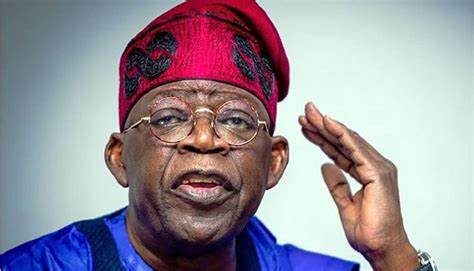by Itodo Samson
The Nigerian Senate has received encomiums for providing national leadership in the timely and progressive conclusion of its amendments to the Electoral Act, 2010. It took the Senate 1 year[1] to conclude its amendment process and submit a 27 clauses amendment to the electoral act[2]. A cursory look at the amendments will suggest that the Nigerian Senate is responsive, strategic and committed to electoral reforms. Whilst the Senate must be commended for undertaking such a herculean task of rejigging our electoral system, it is important to undertake a critical examination of the amendment and ascertain if it responds to our current electoral reality. The Senate amendments can be summarised under the following strategic themes:
- Deepen the Integrity and Neutrality of INEC
The Senate amended several sections of the act to protect the integrity and impartiality of INEC as a non-partisan entity. These amendments are expected to boost stakeholders’ confidence in the electoral process thereby promoting the acceptability of electoral outcomes. The amendment to Section 8 of the Principal Act deters INEC officials from partisanship and it prescribes 5 years’ imprisonment or a fine of at least N5,000,000 as penalty for any person with affiliation, connection or membership of a political party who refuses to disclose his membership status to secure appointment with the Independent National Electoral Commission in any capacity. This amendment is in line with Section 156 of the 1999 Constitution as amended. It also reinforces Section 28 (1) of the principal Act on the neutrality of electoral officials.
- Increased use of technology for elections
The introduction of technology for elections enhances electoral integrity. This is exemplified by the plethora of amendments aimed at mainstreaming technology in the administration of Nigerian elections. The Senate enshrined the use of card readers or any other technological device INEC deems fit for the accreditation of voters. It also legalises electronic voting and electronic transmission of results and accreditation data.
- Improved access to electoral data and information
In an attempt to promote openness and transparency, the Senate legalises publication of important electoral data and information like voter registers to increase public access and facilitate public scrutiny of election data. The Senate in its amendment provided for the establishment of a National Electronic Register of Elections Results to be established by INEC. Under Section 43 of the amendment Act, party agents and accredited election observers have now been legally empowered to inspect original copies of election materials before the commencement of an election. The materials include ballot papers, results sheets, ballot paper account and verification documents.
In the new Section 44, INEC is required to invite political parties 20 days to an election to inspect their identity on samples of election materials to be used for an election. The parties are provided a 2 days’ timeline to approve or disapprove of its identity on samples of election materials. Failure to disapprove or participate in the inspection exercise does not constitute sufficient claim for exclusion in an election.
- Enhanced electoral procedure and time frame
In its wisdom, the Senate thought it apt to revise the timeframe for the conclusion of all matters relating to registration of voters, update and revision of voter register from 30 days to 60 days to an election. 60 days was the original timeframe in the Principal Act until the National Assembly acceded to the request of the Professor Jega-led INEC to amend the timeframe to 30 days in the second alteration to the 2010 electoral act. Then the alteration received legislative approval to enable eligible Nigerians register to vote in the historic 2011 elections.
In the Electoral (Amendment) Act, 2015, Section 18 (1) and (2) was amended to increase the timeframe of replacement of lost, destroyed, defaced, torn or damaged card voter card from 30 days to 60 days. The Senate amendment is expansive to the effect that all matters relating to voter registration is concluded 60 days before any election. This will provide INEC sufficient time to focus on other priority issues like electoral logistics, deployment, training, voter education etc.
One landmark amendment by the Senate is the amendment to Section 53 of the Principal Act on over voting. The amendment is to the effect that the votes cast in a polling unit will be nullified if the number of votes cast during an election in that polling unit exceeds either the number of accredited voters or registered voters in that polling unit.
A new procedure was introduced in the results collation and announcement value chain. By virtue of Section 67 of the amendment, collation officers and returning officer are statutorily required to verify and confirm election results before the announcement of election results. A detailed procedure for resolving disputes arising from collated result or the result of an election from any polling unit is also provided for in the Senate amendment.
- Electoral Offences
The Senate stiffened the penalty for obtaining party registration by providing false or misleading information. In such an event, INEC will have the certificate of registration cancelled and the association will liable upon conviction to a fine of N5,000,000. Its officers (executive and principal officers) shall be liable to a fine of 1,000,000 each or 6 months’ imprisonment or both. The Senate introduced stiffer penalties for INEC officials for non-compliance with laid down procedure or acts capable of undermining the integrity of the electoral process.
- Internal party democracy
As much Nigeria tries to advance in her democratisation process, the lack of internal democracy in political parties remains a major setback. Efforts have been made to strengthen internal party democracy in the past. Incidentally, the Senate introduced an expansive new provision with 26 new subsections, making it the section with the largest number of new subsections. The amendment sought to deepen internal democracy through open, inclusive, and transparent candidate selection process. The amendment by the Senate prohibits parties from imposing nomination qualification and disqualification criteria, measures, or conditions on any aspirant or candidate for any election in its constitution, guidelines, or rules for nomination of candidates for elections, except as prescribed under sections 65, 66, 106, 107, 131, 137, 177 and 187 of the Constitution of the Federal Republic of Nigeria, 1999 (as amended). This bold and innovative amendment will promote inclusion, transparency and constitutionalism.
- Limitation on campaign expenditure
It also prescribes the limit to be imposed by political parties on candidates seeking election as fees, charges or dues. With this amendment, Political parties can no longer impose arbitrary nomination fees or charges. The amendment introduced the following limits:
- N150,000 for a Ward Councillorship aspirant in the FCT;
- N250,000 for an Area Council Chairmanship aspirant in the FCT;
- N500,000 for a House of Assembly aspirant;
- N1,000,000 for a House of Representatives aspirant;
- N2,000,000 for a Senatorial aspirant;
- N5,000,000 for a Governorship aspirant; and
- N10,000,000 for a Presidential aspirant.
- Substitution of candidate in the case of death or withdrawal
In the new amendment to Section 33 of the Principal Act, if a candidate dies or withdraws his/her candidacy, the party affected shall within 10 days conduct fresh primaries and submit a fresh candidate to INEC. In section 36, the Senate sought to fill the lacuna in the law in relation to cases where a candidate in an election dies after the commencement of poll but before the declaration of an election result. INEC is empowered to suspend elections in those instances for a period not exceeding 21 days. The affected party is permitted to conduct fresh primaries and present a new candidate to replace the dead candidate within 14 days. Furthermore, only the Chief National Electoral Commissioner (INEC Chairman) can countermand a poll and appoint a convenient date for an election where a nominated candidate dies before the commencement of an election.
- Election Petition
In its bid to promote electoral justice, the Senate amended Section 138 of the Principal Act to expand grounds for electoral petitions. In addition to non-compliance with the Electoral Act, any act or omission at variance with INEC manuals, guidelines, regulations, procedures and directive constitutes a ground for petitioning an election. In the same vein, an election shall not be invalidated if there’s substantial compliance with INEC manuals, guidelines, regulations, procedures and directive. The Senate also proposed that an election cannot be challenged on grounds of qualification if the winner of that election satisfies the criteria for that election as prescribed in the constitution.
Section 142 was amended by the Senate to fast-track the hearing of election petitions. The amendment renders oral evidence unnecessary in the event that a party who alleges non-compliance with the provisions of the Act and the INEC manuals, guidelines, regulations, procedures or directives lists the documents in an election petition. Section 151 of the Principal Act was also amended to prescribe punishment for breach of an order of a court or tribunal directed at INEC in respect of inspection or production of electoral materials.
- Regulation of local elections and State Independent Electoral Commissions
To guarantee the conduct of free, free and credible elections, the Senate proposed an amendment to extend the application of the Electoral Act to the State Independent Electoral Commission (SIEC). It mandates SIECs to conduct all local government council elections in strict compliance with the spirit and tenets of the 2010 Electoral Act as amended.
Op–ed pieces and contributions are the opinions of the writers only and do not represent the opinions of Y!/YNaija
Samson Itodo is an elections and constitution-building enthusiast and he works with the Youth Initiative for Advocacy, Growth & Advancement (YIAGA). He tweets @DSamsonItodo.














